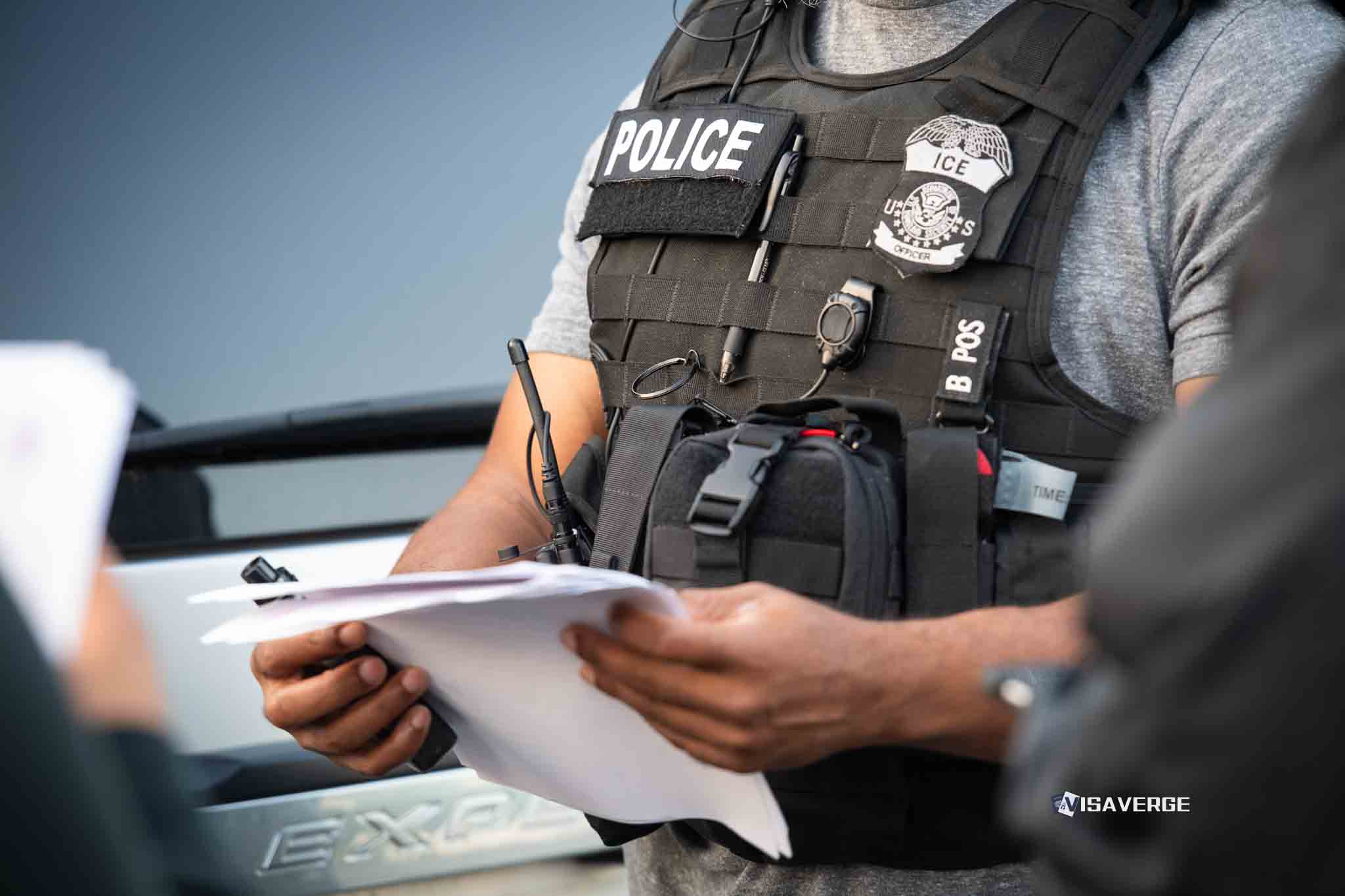Key Takeaways
• Kilmar Abrego Garcia faces deportation to an unnamed third country, not El Salvador, confirmed June 26, 2025.
• He remains jailed in Tennessee on human smuggling charges despite a judge ordering pre-trial release.
• Next key hearing on July 7, 2025, reviewing his deportation arguments and civil lawsuit in Maryland.
The Trump Administration’s Push to Deport Kilmar Abrego Garcia: What’s Happening and Why It Matters
The Trump administration is once again at the center of a heated immigration debate, this time over the fate of Kilmar Abrego Garcia, a long-time Maryland resident with deep family ties in the United States 🇺🇸. On June 26, 2025, in a Maryland federal court, Justice Department attorney Jonathan Guynn confirmed that officials plan to deport Abrego Garcia not to his native El Salvador 🇸🇻, but to an unnamed “third country.” This decision follows a series of legal battles, administrative errors, and ongoing questions about the rights of immigrants facing removal from the United States 🇺🇸.

This case highlights the Trump administration’s aggressive approach to immigration enforcement, the legal and human rights issues at stake, and the uncertainty facing immigrants and their families. Here’s a detailed look at the latest developments, the background, and what could happen next.
Who Is Kilmar Abrego Garcia and Why Is He in the News?
Kilmar Abrego Garcia is a long-time resident of Maryland. He is married to an American citizen and has children who are U.S. citizens. Despite his deep roots in the United States 🇺🇸, Abrego Garcia has faced years of legal trouble over his immigration status.
In March 2025, he was deported to El Salvador 🇸🇻, even though a court order from 2019 specifically barred his removal to that country. The reason for the court’s order was clear: Abrego Garcia had shown credible fear of harm from gangs in El Salvador 🇸🇻. Deporting someone to a country where they face danger goes against the principle of non-refoulement, which is a basic rule in both U.S. and international law that protects people from being sent to places where they could be persecuted.
After his deportation, the Trump administration admitted that sending him to El Salvador 🇸🇻 was an “administrative error.” Following a Maryland judge’s order, Abrego Garcia was brought back to the United States 🇺🇸 in June 2025. However, instead of being reunited with his family, he was immediately jailed in Tennessee on federal human smuggling charges. These charges stem from a 2022 traffic stop where he was found transporting nine passengers.
What Is the Trump Administration Planning Now?
According to statements made in court and reported by VisaVerge.com, the Trump administration is preparing to deport Abrego Garcia again—but this time, not to El Salvador 🇸🇻. Instead, officials say they will send him to a “third country,” which means a country that is not his home country and not the United States 🇺🇸. The specific country has not been named, and it is not clear if any country has agreed to accept him.
Justice Department attorney Jonathan Guynn told the court that Immigration and Customs Enforcement (ICE) intends to start removal proceedings to a third country if Abrego Garcia is released from jail. However, there are currently no imminent plans to deport him, and no timeline has been set. The administration says it will follow all court orders, and the process is on hold while legal proceedings continue.
Why Is He Still in Jail?
Abrego Garcia remains in custody in Tennessee on the human smuggling charges. Although a judge has ordered his pre-trial release, he will stay in jail at least until June 27, 2025, as legal arguments continue over whether he can be deported before his criminal trial.
- U.S. Magistrate Judge Barbara Holmes in Tennessee has ordered his release pending trial, but concerns about possible deportation have kept him behind bars.
- White House spokesperson Abigail Jackson has said that Abrego Garcia will not be deported until after he faces trial for the smuggling charges, and that he will “face the full force of the American justice system.”
- Department of Homeland Security (DHS) spokesperson Tricia McLaughlin stated, “He will never go free on American soil,” making it clear that the administration wants to keep him in custody or remove him from the country.
What Are the Legal Issues at Stake?
The Trump administration’s plan to deport Abrego Garcia to a third country is based on a policy that allows for removals not just to a person’s home country, but to other countries as well. This policy was supported by a Supreme Court decision and is part of a broader effort to speed up deportations, expand detention, and limit asylum and humanitarian relief.
However, this approach raises serious legal and human rights questions:
- Non-refoulement: This is the rule that says a person should not be sent to a country where they face persecution or danger. Critics argue that sending someone to a third country, especially if that country might then send them on to their home country, could violate this rule.
- Due process: Abrego Garcia’s attorneys say that the government’s actions violate court orders and his right to fair legal proceedings.
- Judicial authority: Some legal experts warn that ignoring or working around court orders undermines the power of the courts and the rule of law.
What Happens Next? Key Dates and Pending Decisions
The next big moment in this case will come on July 7, 2025, when a Maryland federal court will hold a hearing to review Abrego Garcia’s arguments against deportation and the government’s motion to dismiss his civil lawsuit over his earlier deportation.
Here’s a summary of the current step-by-step process:
- Criminal Proceedings: Abrego Garcia is in federal custody in Tennessee, facing human smuggling charges. He has pleaded not guilty.
- Pre-Trial Release: A judge has ordered his release before trial, but he remains in jail while legal debates continue.
- Removal Proceedings: If he is released from criminal custody, ICE plans to take him into immigration custody and try to deport him to a third country.
- Civil Litigation: A federal court in Maryland is reviewing his lawsuit over his wrongful deportation to El Salvador 🇸🇻.
- No Imminent Deportation: Officials say there is no immediate plan or set timeline for his removal.
Background: How Did We Get Here?
Abrego Garcia’s story is not unique, but it is especially complex. He has lived in the United States 🇺🇸 for many years, built a family, and tried to follow the legal process to stay in the country. His troubles began when he was found transporting nine people in 2022, leading to the human smuggling charges.
In 2019, a court found that he faced credible threats from gangs in El Salvador 🇸🇻 and ordered that he not be deported there. Despite this, he was removed to El Salvador 🇸🇻 in March 2025, which the administration later admitted was a mistake. After a judge ordered his return, he was brought back to the United States 🇺🇸, only to be jailed again.
The Trump administration’s current policy, which allows for deportations to third countries, is part of a larger effort to tighten immigration enforcement. This includes:
- Rapid removals: Speeding up the process of deporting people without lengthy court hearings.
- Expanded detention: Holding more people in immigration jails for longer periods.
- Restrictions on asylum: Making it harder for people to claim protection in the United States 🇺🇸.
What Does “Third Country” Mean and Why Is It Controversial?
A “third country” in immigration law is a country that is not the person’s home country and not the United States 🇺🇸. The idea is that if someone cannot be sent back to their home country because of danger, they might be sent somewhere else instead.
The Trump administration’s use of third-country removals has been supported by the Supreme Court, but it is highly controversial. Critics say that:
- The third country may not be safe or may not have agreed to take the person.
- The person may have no ties, family, or support in the third country.
- There is a risk of “chain refoulement,” where the third country might then deport the person to their home country, putting them in danger anyway.
What Are the Broader Implications?
This case has become a flashpoint in the debate over the Trump administration’s immigration policies. Here’s how different groups are reacting:
- Immigration advocates: Say that the administration’s approach violates both U.S. and international law, especially when people are sent to countries where they could be harmed or have no legal status.
- Government officials: Defend the policy as necessary for national security and immigration control, pointing to Supreme Court approval.
- Legal scholars: Warn that these practices could undermine protections for refugees and asylum seekers and weaken the authority of the courts.
- Public reaction: The case has sparked outrage among immigrant rights groups and drawn national media attention as an example of the administration’s tough stance on immigration.
What Does This Mean for Other Immigrants?
For people in situations similar to Abrego Garcia, the practical effects are serious:
- Prolonged detention: People may spend months or even years in jail while their cases are decided.
- Legal uncertainty: It’s often unclear what will happen next, which country they might be sent to, or whether they will ever be allowed to return to their families.
- Risk of harm: Being sent to a third country can mean facing new dangers, having no support, or being sent on to a country where they face persecution.
What Can Families and Advocates Do?
If you or someone you know is facing removal or detention, it’s important to:
- Stay informed: Follow updates from official sources like U.S. Immigration and Customs Enforcement (ICE) and the federal courts.
- Seek legal help: Contact organizations like the American Immigration Council or the ACLU for advice and representation.
- Monitor court dates: Keep track of important hearings, such as the July 7, 2025, hearing in Maryland federal court.
Summary Table: Key Facts
| Item | Detail |
|---|---|
| Individual | Kilmar Abrego Garcia |
| Current Status | In federal custody (Tennessee), pending criminal trial |
| Next Major Court Date | July 7, 2025 (Maryland federal court hearing) |
| Administration’s Plan | Deport to unnamed “third country,” not El Salvador |
| Timeline for Deportation | No imminent plans, no set timeline |
| Legal Basis | Supreme Court approval for third-country removals |
| Policy Context | Part of Trump administration’s aggressive immigration enforcement |
| Main Legal Issues | Violation of court orders, non-refoulement, due process |
| Stakeholders | DOJ, DHS, ICE, federal courts, Abrego’s attorneys, immigrant advocates |
Looking Ahead: What’s Next for Abrego Garcia and U.S. Immigration Policy?
The outcome of the July 7, 2025, hearing will be crucial. The court will decide whether Abrego Garcia can be protected from further deportation and whether his lawsuit against the government will move forward. There is also ongoing uncertainty about which third country, if any, will accept him.
This case could set an important precedent for how the United States 🇺🇸 handles similar cases in the future. If more people are removed to third countries, there may be new legal challenges and debates about the rights of immigrants and the limits of government power.
For now, families, advocates, and officials are watching closely. The Trump administration’s approach to cases like Abrego Garcia’s will continue to shape the national conversation about immigration, justice, and the meaning of protection for those at risk.
Practical Guidance for Readers
- If you are facing removal or detention: Contact a qualified immigration attorney as soon as possible.
- For updates on this case and others: Check official court dockets, ICE press releases, and trusted news outlets.
- To learn more about removal proceedings and your rights: Visit the U.S. Citizenship and Immigration Services (USCIS) official page on removal proceedings.
As reported by VisaVerge.com, the Trump administration’s handling of Kilmar Abrego Garcia’s case is a clear example of the complex and often harsh realities of U.S. immigration policy today. The coming weeks will be critical in determining not just Abrego Garcia’s fate, but also the future direction of immigration enforcement in the United States 🇺🇸.
Learn Today
Non-refoulement → International law principle preventing deportation to countries where individuals face persecution or danger.
Third Country → A nation other than an individual’s home country or the United States for deportation purposes.
Human Smuggling → Illegal transportation of people across borders, often resulting in criminal charges.
Due Process → Legal requirement ensuring fair treatment through judicial system protections.
ICE → U.S. Immigration and Customs Enforcement agency responsible for immigration enforcement and deportations.
This Article in a Nutshell
Kilmar Abrego Garcia’s case highlights Trump administration’s aggressive deportation policy, including removals to unnamed third countries, raising serious legal and human rights concerns amid ongoing criminal proceedings.
— By VisaVerge.com













